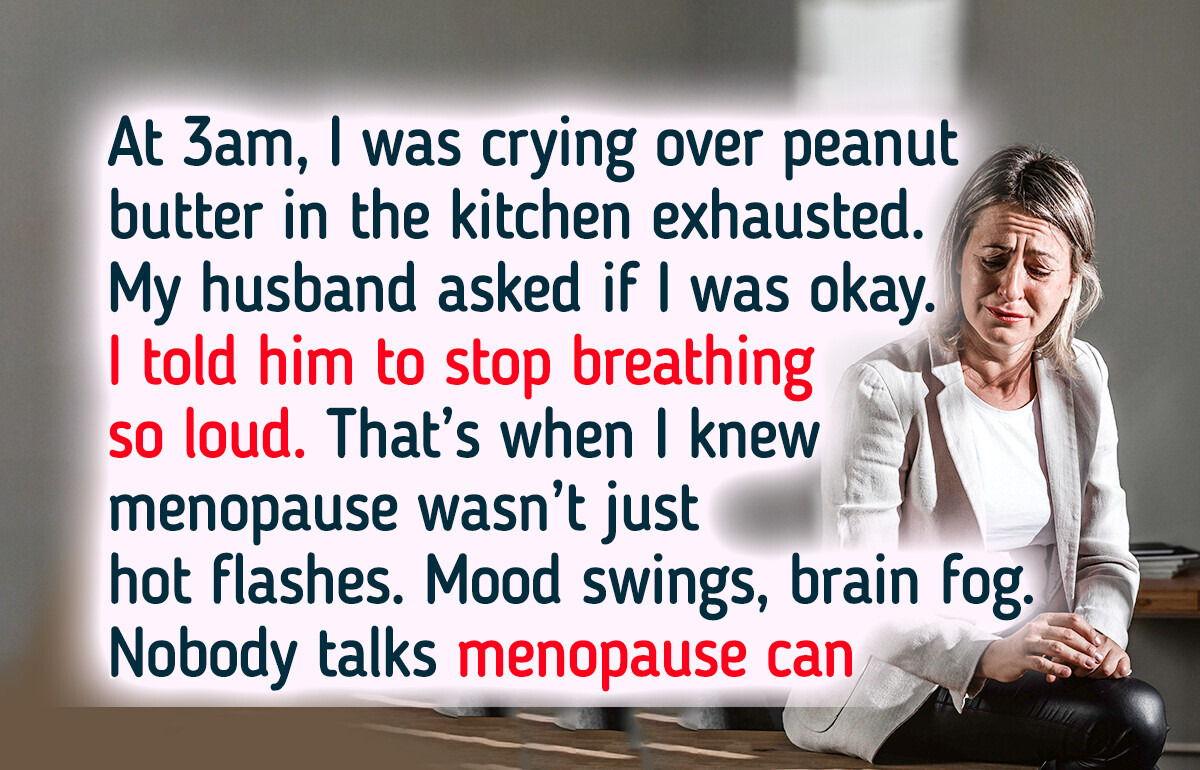My Husband Unconsciously Called Me Another Woman’s Name — I Was Utterly Shocked to Discover Who It Was


Menopause is a natural part of life — but that doesn’t mean it’s easy.
We recently received a letter from a reader who wanted to break the silence around something many experience but few talk about openly.
“At 3am, I was crying over peanut butter in the kitchen, exhausted. My husband asked if I was okay. I told him to stop breathing so loud. That’s when I knew menopause wasn’t just hot flashes.
Mood swings, brain fog. Nobody talks menopause can quietly wreck your relationship.
And our marriage? We weren’t fighting—we were fading.
I whispered, ‘I don’t feel like me.’
He said, ‘I know.’
You’re not crazy. You’re not alone.”
Thank you for sharing with us!
The hormonal changes that occur during menopause can affect not only your physical health but also your mental wellbeing. It’s common to experience a range of emotional and cognitive shifts during this time, including:
Hormonal changes during menopause can affect your mental health as well as your physical wellbeing.
Everyone’s experience with menopause is different, so finding the right approach for you is important. Some treatments that may help ease psychological symptoms include:
Maintaining a healthy, balanced diet and staying active can also make a big difference. Gentle activities like yoga, walking, or guided mindfulness can help boost your mood and overall wellbeing — and many resources are free and easy to access.
You’re not alone in what you’re experiencing — support is available, and things can get better with the right help. Taking small steps to care for your mental health during menopause can make a big difference in how you feel each day.
9 Myths About Women’s Health That Have Nothing to Do With Reality











